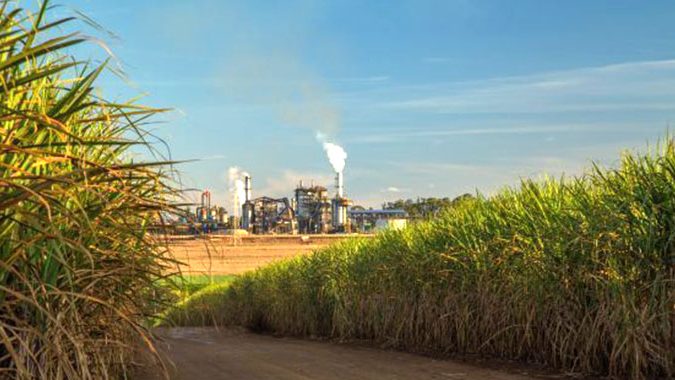…set to Create 1,500 Jobs in Govt Partnership
By ETimes

Financial Performance Highlights
- Listed sugar miller Hippo Valley Estates reported an inflation adjusted Profit After Tax of ZWL$2.5 billion, down 54% from the 2021 half-year comparative. The depressed performance was largely attributed to a ZWL$7.8 billion fair value adjustment loss stemming from biological assets. Consequently, operating profits fell by 14% to ZWL$8.9 billion.
- Hippo Valley’s revenues climbed 61% to ZWL$63.1 billion, despite reporting a 3% decline in total sales volumes during the period. Export sales increased by 19%, driven by growth in sales to the US and Kenyan markets. Commenting on the local market, the company noted competitive pressures from imported sugars due to the suspension of duty on basic commodities.
- The company reported a 12% rise in tonnes of cane crushed during the period. Sugar cane deliveries from private farmers declined by 5% because of a delayed planting season due to wet weather.
- Gross profits increased by 77% to ZWL$35.5 billion, while EBITDA increased by 63% to ZWL$18.9 billion.
- The company’s net cash from operations fell to ZWL$2.6 billion, this was attributable to increased working capital expenditure. Net investment expenditures stood at ZWL$1.1 billion, with ZWL$0.7 billion going towards root replanting after the company raised additional borrowings of ZWL$3.4 billion.
- Total assets stood at ZWL$103 billion, with cash holdings of ZWL$3.1 billion, inventories of ZWL$34 billion, biological assets of ZWL$21 billion and receivables of ZWL$21.7 billion. Total liabilities stood at ZWL$50.2 billion, with borrowings of ZWL$4.5 billion and payables of ZWL$25 billion.
- Looking ahead, the company revealed that it had reached an agreement with the Government of Zimbabwe to manage 3,300 hectares in Kilimanjaro on a cost recovery basis, with the goal of empowering 165 farming households. The project is expected to create 1,500 jobs and is expected to create economic value of US$25 million.
- Hippo Valley Estates is also waiting for the finalization of a 99 year lease relating to Hippo Valley North. According to the company, the government has made assurances that the administrative processes were near competition.
- The company reported adequate irrigation water cover for the next two seasons, and expects total sugar production in the current season to be marginally within prior levels. Ongoing production expansion and yield improvement initiatives are expected to pay-off in future seasons. The company expects to prioritize meeting the requirements of the local markets and will allocate residual stocks to export markets.
- In the boardroom, directors Mr. N. Kudenga and Mr. R. Goetzsche retired from service. No replacements were announced.
- The company declared an interim dividend of USc0.30 per cent for the year ended 31 March 2023. The dividend will be payable in full on the 6th of January 2023, to all registered shareholders on the 30th of December 2022.

Commentary and Analysis
At face value, it’s a fair set of financial results from Hippo Valley Estates – the company’s past issues with accounting practices necessitates a small disclaimer. The sharp rise in revenues relative to the decline in sales volumes corresponds with the global rise in food commodity prices. Going forward, as the country’s primary supplier of raw and refined sugar products, sales volumes are expected to be resilient against the turbulent consumer environment. Additionally, the financial challenges facing Tongaat Hullett – Hippo’s parent company might yield more opportunities in the export markets. The stability of the group’s EBITDA and Gross Profit margins suggests increments in raw material costs were effectively transmitted to the customers. The company’s private electricity generation capacity should shield it from the ongoing supply challenges on the public national grid. This should offer some protection for the company’s production capacity and profit margins. The decline in the company’s liquidity indicators is noticeable, but follows the general trend as local firms have invested significantly in working capital as a hedge against macroeconomic shocks.
With a 53% share of the local sugar market, the group looks to be targeting a larger share of the market. There have been some rumblings from small-scale sugar cane farmers about the need for more competition in the market. While the current economic environment likely limits the scope for a large-scale entrant, it could be a concern in the long-term. Given the sociopolitical implications, Hippo Valley Estates could face increasing pressure to revise the terms of its sugar cane out-grower schemes. It’s a situation that puts some context to the company’s efforts to expand its private land holdings. That said, the partnership with the government should put it on solid grounding with the authorities.
On the ZSE, since the start of 2022, the Hippo Valley has lost 32% value in nominal terms and 89% in implied US dollar terms. The share is currently trading at a price to book ratio of 0.6x – Harare



